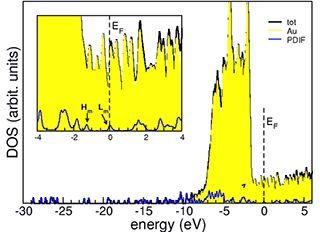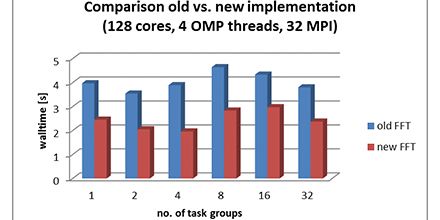Lov’n Quantum Espresso
Researchers use specialized software such as Quantum ESPRESSO and a variety of HPC software in conducting quantum materials research. Quantum ESPRESSO is an integrated suite of computer codes for electronic-structure calculations and materials modeling, based on density-functional theory, plane waves and pseudo potentials. Quantum ESPRESSO is coordinated by the Quantum ESPRESSO Foundation and has a growing world-wide user community in academic and industrial research. Its intensive use of dense mathematical routines makes it an ideal candidate for many-core architectures, such as the Intel Xeon Phi coprocessor.
The Intel Parallel Computing Centers at Cineca and Lawrence Berkeley National Lab (LBNL) along with the National Energy Research Scientific Computing Center (NERSC) are at the forefront in using HPC software and modifying Quantum ESPRESSO (QE) code to take advantage of Intel Xeon processors and Intel Xeon Phi coprocessors used in quantum materials research. In addition to Quantum ESPRESSO, the teams use tools such as Intel compilers, libraries, Intel VTune and OpenMP in their work. The goal is to incorporate the changes they make to Quantum ESPRESSO into the public version of the code so that scientists can gain from the modification they have made to improve code optimization and parallelization without requiring researchers to manually modify legacy code.
 Electrical conductivity of a PDI-FCN2 molecule.
Electrical conductivity of a PDI-FCN2 molecule.
